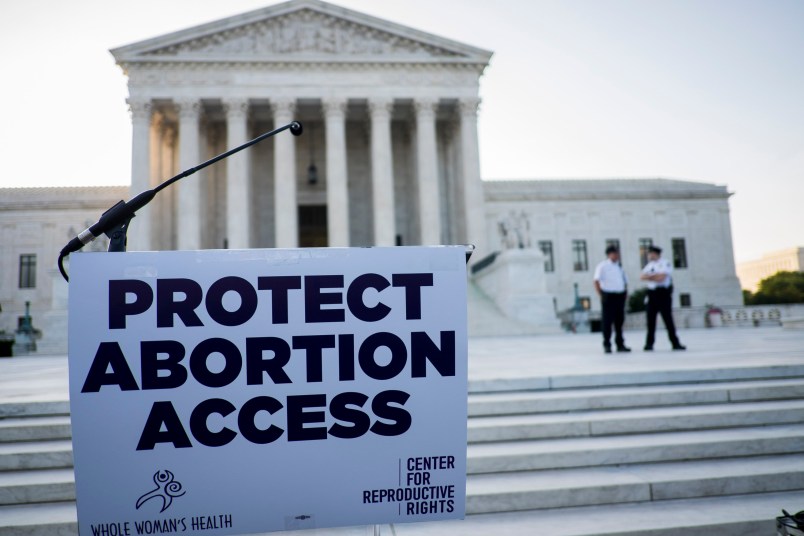WASHINGTON (AP) — The Supreme Court is allowing Arkansas to put in effect restrictions on how abortion pills are administered. Critics of a challenged state law say it could effectively end medication abortions in the state.
The justices did not comment Tuesday in rejecting an appeal from the Planned Parenthood affiliate in Arkansas that asked the court to review an appeals court ruling and reinstate a lower court order that had blocked the law from taking effect. The law says doctors who provide abortion pills must hold a contract with another physician who has admitting privileges at a hospital and who would agree to handle complications.
The law is similar to a provision in Texas law that the Supreme Court struck down in 2016.
The 8th U.S. Circuit Court of Appeals reversed the court order barring enforcement of the law, but put its ruling on hold while Planned Parenthood appealed to the Supreme Court.
The legal fight over the law is not over, but the state is now free to enforce the law at least for the time being.
Planned Parenthood has said that if the law stands, Arkansas would be the only state where women would not have access to a pair of drugs that end pregnancies: mifepristone, which makes it difficult for a fetus to attach to the uterine wall, and misoprostol, which causes the body to expel it, similar to a miscarriage.
The organization offers pills to end pregnancies at clinics in Fayetteville and Little Rock but says it cannot find any Arkansas obstetrician willing to handle hospital admissions. Preventing women from obtaining medication abortions would create an undue burden on their right to an abortion, Planned Parenthood says. Undue burden is the standard set by the Supreme Court to measure whether restrictions go too far in limiting women who want an abortion.









